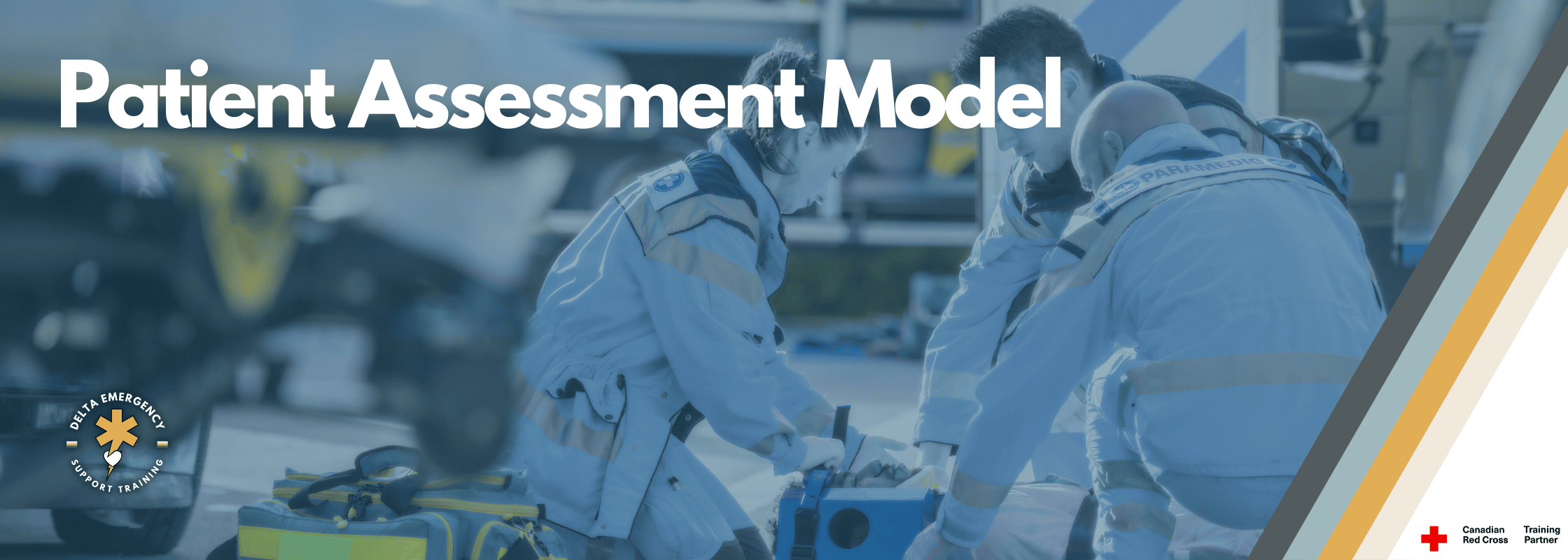Delta Emergency Patient Assessment Model

Understanding the Patient Assessment Model (PAM)
At Delta Emergency, we teach a streamlined and scenario-tested Patient Assessment Model (PAM) to help students confidently move through any medical or trauma situation. This model is designed with Red Cross Guidelines to support learning and created by experienced Advanced Care Paramedics to enhance real-world decision making by guiding you through a structured, logical, and repeatable flow of assessment and intervention.
Whether you’re working on a conscious medical patient, an unresponsive trauma patient, or anything in between, our PAM keeps you focused, organized, and effective.
Memorize the Patient Assessment Model
It’s your blueprint in chaos.
Emergencies are unpredictable. Memorizing the PAM ensures you don’t skip steps or overlook critical interventions.It reinforces the Red Cross priorities.
While acronyms and sequences may vary from program to program (HEMPPA, DRABC, SAMPLE, OPQRSTA, etc.), the core priorities never change:
Level of Responsiveness (LOR)
Airway, Breathing, and Circulation (ABCs)
Interventions and Packaging
Rapid and Ongoing Assessment
Our PAM simply organizes these concepts into a clean, repeatable workflow.
Your key to passing scenarios.
The Red Cross standards expect students to follow a logical, prioritized assessment, even if the language or flow is different. Memorizing our PAM gives you a reliable reference point when practicing or testing, and lets instructors give you consistent feedback.Create muscle memory.
The more you walk through our PAM in simulations, the more confidently you’ll apply it in the real world - on the road, in a rink, or at the scene.
But What If I Learned It Differently Before?
We get it, many programs use different acronyms, and you might have been taught another flow and that’s totally fine! The goal is not the acronym, the goal is patient care. We'll say it again:
The goal is not the acronym. The goal is patient care.
If you prefer another sequence you’re welcome to use it, as long as it:
Covers all required assessment elements
Prioritizes critical interventions
Meets Red Cross standards for logic, safety, and thoroughness
Learn our PAM
It’s what we reference during class and feedback
It aligns with our simulation structure and skill sheets
It ensures you're covering all the required Red Cross competencies
Our PAM isn’t just a checklist, it’s a roadmap for critical thinking. Learn it. Practice it. Use it as your mental anchor when things get loud, stressful, or confusing. It’s how you pass your scenarios, and more importantly, it’s how you keep people alive.